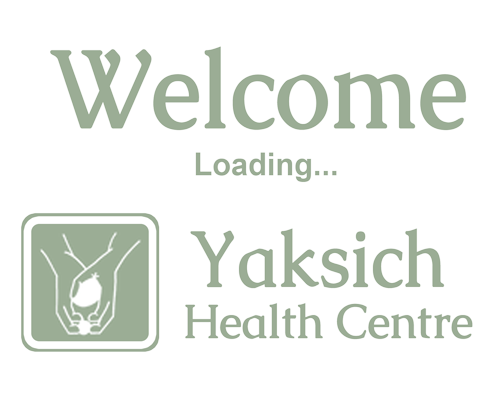Headaches
Yaksich Health Centre
Headaches
Yaksich Health Centre
Headaches are a common condition that affects a significant portion of the population worldwide. According to the World Health Organization (WHO), headaches are the most common neurological disorder, with an estimated 47% of adults experiencing a headache at least once within the last year.
Causes
Yaksich Health Centre
There are many potential causes of headaches, and the specific cause can vary depending on the type of headache a person is experiencing. Some of the most common causes of headaches include:
- Tension headaches: caused by muscle tension in the head, neck, and scalp, often due to stress, poor posture, or lack of sleep.
- Cervicogenic headaches: caused by problems in the neck, such as a herniated disc, arthritis, or muscle strain, that can refer pain to the head.
- Migraines: caused by changes in the blood vessels and chemicals in the brain, often triggered by certain foods, stress, hormonal changes, or other factors.
- Cluster headaches: caused by changes in the blood vessels and chemicals in the brain, although the exact cause is not well understood.
- Medication overuse headaches: caused by frequent use of pain relievers, which can lead to a rebound effect, where the headaches become more frequent and more severe.
- Sinus headaches: caused by inflammation and congestion in the sinuses, often due to allergies, colds, or sinus infections.
- Secondary headaches: caused by an underlying medical condition, such as a brain tumor, meningitis, or a stroke.
- Other potential causes can include dehydration, changes in weather, certain medications, or exposure to certain chemicals, such as tobacco smoke or certain cleaning products.
YAKSICH HEALTH CENTRE

Treatment
Yaksich Health Centre
There are several treatment options for headaches, depending on the type and severity of the headache, as well as the underlying cause:
- Lifestyle changes: Making changes in your lifestyle can help prevent headaches, such as regular exercise, eating a healthy diet, maintaining a regular sleep schedule, and reducing stress.
- Chiropractic and osteopathic care: manual adjustments to the spine to improve alignment and reduce pain.
- Physical therapy: exercises and stretches to strengthen the muscles in the head, neck, and shoulders, as well as to correct any poor posture, can help relieve tension headaches.
- Acupuncture: a traditional Chinese medicine technique in which thin needles are inserted into the skin at specific points on the body, has been used to treat headaches and migraines.
- Relaxation therapy: Techniques such as deep breathing, progressive muscle relaxation, and yoga can help to reduce stress and tension, which can be a trigger for headaches.
- Medications: Over-the-counter pain relievers, such as ibuprofen and acetaminophen, can be effective for mild to moderate tension headaches and migraines. For migraines, there are also other medications that can help prevent or reduce the severity and duration of migraines attacks, such as triptans, ergots, and non-steroidal anti-inflammatory drugs.
- Preventive therapy: for people with chronic headaches or migraines, preventive therapy can help reduce the frequency and severity of headaches. This can include medications such as beta-blockers, anticonvulsants, and tricyclic antidepressants. Also, other interventions such as cognitive-behavioural therapy, mindfulness-based stress reduction, relaxation techniques and acupuncture can be effective as well.
Contact Us
Reach out today, to learn how we can help you, live a pain free life.

